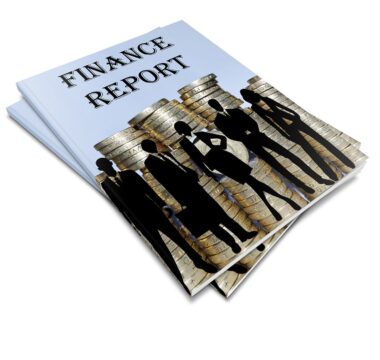Annual Tax Reporting: Best Practices for Financial Reporting Professionals
Annual tax reporting is a critical aspect of financial accounting that emphasizes compliance with legal standards. It involves gathering and organizing tax-related data to prepare financial statements accurately. To excel in this task, professionals must adhere to best practices that ensure transparent and precise reporting. One effective strategy is to regularly update tax codes and regulations relevant to the specific financial jurisdiction. Professionals should invest time in familiarizing themselves with these changes, as they can significantly impact tax liabilities. Another important practice is to maintain meticulous records throughout the financial year. This not only facilitates easier reporting but also allows for more efficient audits when they arise. Furthermore, leveraging technology can enhance efficiency in data collection and analysis. Software solutions that offer tax reporting features can help consolidate data, generate reports, and minimize errors. Training staff to use these modern tools effectively is essential. Continuing education in tax laws and reporting methods can further bolster a professional’s capabilities. In conclusion, adopting these best practices can lead to improved accuracy and compliance in annual tax reporting.
Record Management Strategies
Effective record management is essential for successful annual tax reporting. Professionals should implement systematic methods for organizing and storing financial data, which makes it easier to retrieve necessary information for tax compliance. Utilizing digital storage solutions can aid in efficient record-keeping, as digital formats often allow for easier sorting, searching, and sharing of documents. This ultimately reduces the time devoted to record retrieval significantly. Moreover, establishing a clear naming convention and consistent file structure can enhance accessibility. Not only does this save time during the reporting season, but it also enhances collaboration among team members involved in the reporting process. Developing standardized templates for financial statements and tax documents can further streamline operations. In addition, financial reporting professionals should perform regular audits of their records for completeness and accuracy. This proactive approach helps identify issues early, mitigating the risk of compliance violations. Implementing archiving processes for older records that are no longer applicable ensures that only relevant documents are retained. Together, these strategies can ensure an organized and efficient approach to managing records in preparation for annual tax reporting.
A vital consideration in annual tax reporting is compliance with accounting standards set forth by the governing bodies. Financial reporting professionals must understand both international and local accounting principles, as they dictate how financial statements should be prepared and presented. Keeping abreast of evolving standards is crucial for mitigating risks associated with non-compliance. It is advisable to attend relevant training and participate in workshops to remain educated on the latest updates. Equally important is the need for clear communication with stakeholders. Engaging with auditors, tax advisors, and other professionals can facilitate various stages of the reporting process. For instance, discussing tax strategies with advisors can uncover potential deductions or credits that can be used to minimize tax liability. By communicating effectively, professionals can ensure that all parties involved in the reporting process understand their roles. Additionally, the collaboration can help all stakeholders make informed decisions based on financial data, ultimately improving the outcomes for the organization. Ensuring compliance within the framework of established accounting standards is, therefore, paramount for successful annual tax reporting.
Another effective practice in annual tax reporting is the integration of risk management strategies. By identifying and assessing potential risks associated with tax reporting, financial professionals can develop targeted strategies to mitigate these risks. This proactive approach allows organizations to avoid costly penalties and legal challenges stemming from non-compliance. Conducting regular risk assessments and audits related to tax practices can help highlight areas that require attention and improvement. Additionally, employing scenario analysis can prepare professionals for various tax-related uncertainties that may impact their reporting. Establishing contingency plans can further safeguard against these contingencies, ensuring that the organization remains on track regardless of unforeseen circumstances. Furthermore, risk management frameworks should be regularly updated in line with regulatory changes and organizational shifts. By fostering a risk-aware culture within the finance department, professionals can promote diligence and accountable reporting among team members. Finally, collaborating with external auditors and tax consultants can bring fresh perspectives and insights into potential risks. This collaborative effort will create a more robust framework for managing risk effectively during the annual tax reporting process.
The Role of Technology in Tax Reporting
Technology plays an increasingly significant role in the future of annual tax reporting. Leveraging digital solutions can tremendously enhance accuracy, speed, and efficiency while navigating complex tax regulations. Automation tools can help streamline data analysis and reporting procedures. By reducing human error associated with manual calculations, tech-driven solutions pave the way for more accurate reporting outcomes. Furthermore, cloud-based systems can facilitate real-time collaboration among reporting teams, enabling seamless data sharing and accessibility. This decentralized approach provides stakeholders with instant access to critical financial information, allowing them to make timely decisions. Moreover, the use of artificial intelligence can revolutionize the tax reporting landscape by identifying trends and anomalies that may otherwise go unnoticed. Implementing machine learning algorithms in data analysis can provide deeper insights into tax obligations and optimize tax planning strategies. Consequently, financial reporting professionals should embrace technological advancements to bolster their reporting capabilities. By investing in training and adopting the latest software solutions, organizations can maintain a competitive edge and ensure their tax reporting practices are efficient, compliant, and sustainable in the long term.
Staying updated with industry trends is essential for those in financial reporting. The tax landscape is continually evolving, influenced by legislative changes and economic fluctuations. Therefore, professionals should actively seek resources such as industry publications, webinars, and professional associations to deepen their knowledge. This involvement can enhance their ability to navigate complex tax environments effectively. Joining professional organizations can also create networking opportunities. Engaging with peers can lead to the sharing of innovative tax reporting practices and insights. Additionally, continuing professional development can help individuals acquire certifications relevant to tax reporting, demonstrating their commitment to excellence. These activities not only enrich professionals’ skills but also enhance their organizational reputation. Furthermore, encouraging workforce training and cross-training within teams promotes a collaborative environment. Understanding different aspects of tax reporting fosters a well-rounded team that can tackle challenges more effectively. As a result, organizations benefit from diversified knowledge and skills embedded within their teams. By prioritizing continuous learning and adapting to industry changes, financial reporting professionals position themselves for success during annual tax reporting.
Finally, effective communication throughout the annual tax reporting process cannot be overstated. Clear communication ensures that all stakeholders are aligned on objectives, timelines, and expectations. It is crucial to establish guidelines for submitting relevant financial data, minimizing the possibility of misunderstandings. Scheduling regular check-ins among team members and departments can facilitate open discussions on progress and roadblocks. Furthermore, documenting these communications in written form can provide a clear reference point for future reporting seasons. Transparent communication strategies foster accountability and trust within the team. Additionally, it’s vital to cater the complexity of correspondence to the audience’s knowledge. Tailoring communication approaches ensures that information is accessible and understandable for all stakeholders involved. Encouraging feedback within teams can lead to continuous improvement and greater efficiency during the reporting process. Providing opportunities for team members to voice their concerns or suggestions can enhance collaboration and strengthen team dynamics. In conclusion, establishing robust communication practices is essential for successful annual tax reporting and builds a solid foundation for future endeavors.
In summary, annual tax reporting is a critical component of financial reporting practices. By adhering to the best practices discussed above, professionals can navigate the complexities of tax compliance efficiently. Emphasizing effective record management, understanding accounting standards, and integrating risk management strategies all contribute to successful outcomes. Furthermore, harnessing technology also enhances efficiency, accuracy, and collaboration within reporting teams. Staying informed about industry trends through continued education and networking opportunities enables professionals to remain competitive and innovative in their approaches. Finally, fostering a culture of clear communication is vital to ensuring that stakeholders understand their roles and responsibilities throughout the reporting process. By applying these strategies, financial reporting professionals can optimize their annual tax reporting procedures and promote organizational success.





